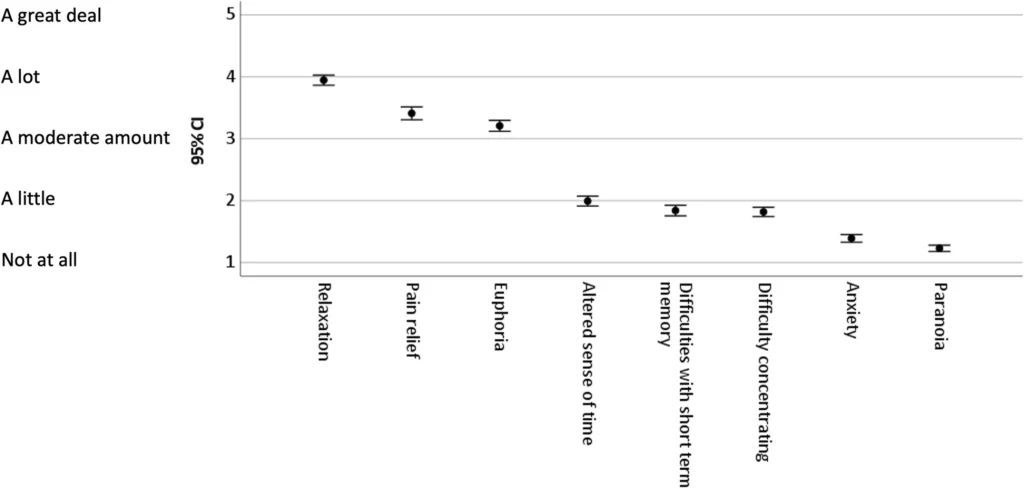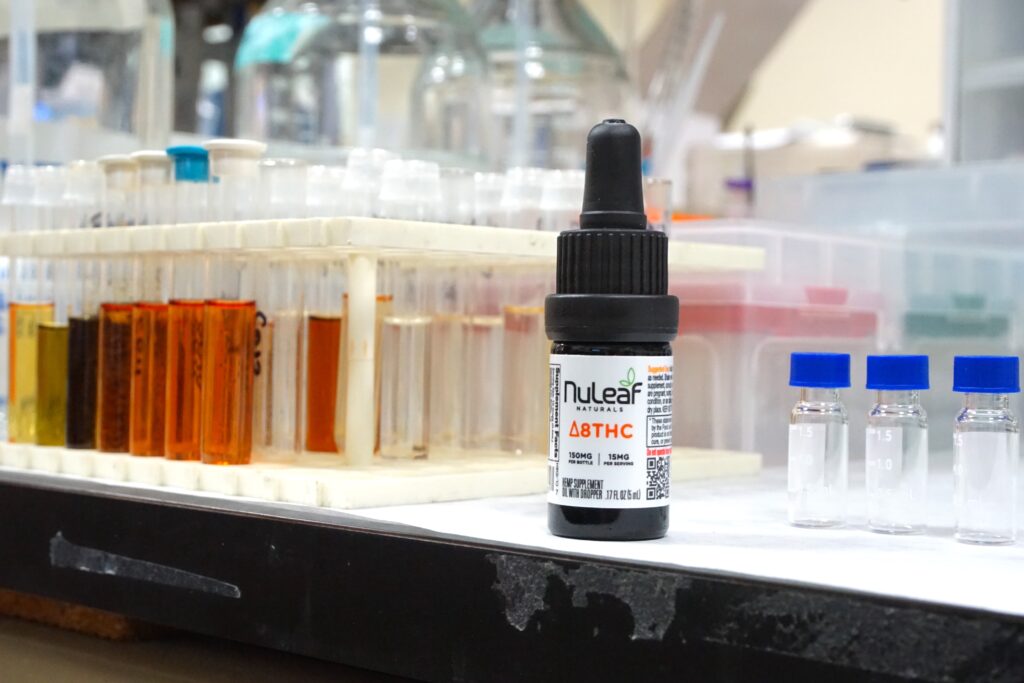The laws around Delta 8 and Delta 10 are a lot trickier than that of Delta 9.
Delta 8 has been around but got increasingly popular from the Farm Bill of 2018. In the massive rise of hemp producers, it became a core product, especially with Delta 9 still being federally illegal. Now, Delta 10 is on the rise.
But what even are all these different types of THC? These two THC compounds, Delta 8 and 10, are minor cannabinoids. Delta 9 is a major cannabinoid and the most potent.
There are a lot of unknowns with these newly rising cannabinoids. The effects and potency of effects are still in question. This has been causing legal concerns. With a lack of research, some states have gone as far as prohibiting them, even though they meet the requirements of being under 0.3% THC.
We’re here to help clear up as much confusion as we can for you!
Delta 8 THC
Since its rise in popularity, especially from the pandemic, Delta 8 has garnered the world’s attention. Specifically the scientific world. Research has been quick and accessible thanks to its relaxed regulation of it, compared to Delta 9. Still, there is a lot to learn. Studies take time and Delta 8 hasn’t been mainstream for very long.
What do we know so far?
We know that Delta 8 has an altered molecular structure from Delta 9, which lowers its psychotropic potency. Simply put, you won’t get near as high.
We also know that Delta 8 is naturally found in cannabis. It can be sourced from other cannabinoids too, mainly CBD. Regardless of the source, the concentration is extremely low in comparison to Delta 9.
Because of a lower concentration, the potency of effects changes. This not only changes the positive effects but the adverse effects as well. In the first large survey of Delta 8 consumers published in 2022, it was reported that “users experienced a lot or a great deal of relaxation (71%); euphoria (68%) and pain relief (55%)…” These are similar benefits to that of Delta 9.
In terms of adverse effects, participants in the same study experienced “a moderate amount or a lot of cognitive distortions…and did not experience anxiety (74%) or paranoia (83%).” While levels of cognitive distortions were similar to Delta 9, anxiety and paranoia seem to be much lower.
A decrease in these two is significant because one of the main drawbacks of Delta 9 is anxiety and paranoia for many people. In our eyes, that is important for the medicinal purposes of cannabis and THC.
Chart from Delta 8 study showing experiential effects


*This work is licensed under a Creative Commons Attribution 4.0 International License.
Delta 9 THC
This is the version of THC that is usually talked about when it comes to cannabis. It is the most prominent and potent and sold at dispensaries. Delta 9 has been researched for a long time due to its psychoactive nature. The only thing that has been limiting further research is that it is still federally illegal in the United States.
To learn more about the basics of Delta 9 THC, check out our THC Basics post.
Delta 10 THC
There has been very little research done on Delta 10. In fact, we couldn’t find a single medical journal that had any findings yet. So, we are going to base our evidence on what we have seen most around the internet. *This information is not 100% and could be subject to change.
What do we know so far?
Delta 10 is similar to Delta 8. It is similar in structure to Delta 8 and 9. According to some anecdotal evidence, it’s less potent than both too. It is found in trace amounts in hemp, even less than Delta 8. In fact, extraction from CBD is the preferred method.
More anecdotal evidence shows that people believe that Delta 10 could be the “sativa” to Delta 8’s “indica”. In the thinking that a sativa will give energetic and uplifting effects while an indica will be sedating.
That’s about all that we could accumulate. Again, there isn’t clear and trusted information out on Delta 10 yet. As new research come out, we will make an update.
Key Differences in Delta 8, 9, and 10
- Delta 8 and 10 are isomers of Delta 9 THC (same code/makeup but arranged differently). As James Franco says in “The Interview,” “same-same, but different.”
- This changes how they react in our bodies
- Delta 8 and 10 seem to have similar effects to Delta 9, only less potent (anecdotal evidence)
- Delta 10 is considered the least potent
- The lower potency seems to produce fewer adverse effects while maintaining the benefits (anecdotal evidence)
Significance of 0.3% THC
In short, this is meaningful because it is the amount of THC by dry weight needed to be considered hemp and not cannabis. Less than 0.3% is hemp and over 0.3% is cannabis. And, as the federal law states, hemp is legal, while cannabis isn’t. The hemp plant, as well as the products derived from it, have to abide by this rule.
Legality
- No federal regulations on Delta 8 or 10 derived from hemp
- Delta 9 is federally illegal when derived from cannabis
- Delta 8 is illegal in 17 states (hemp or cannabis) according to World Population Review
- Delta 10 is illegal in 11 states (hemp or cannabis) according to ATLRx
- THC is THC, so all of these can pop up on a drug test. It is best to play it safe if you have to take one soon.
Expect the federal government to eventually make moves to regulate cannabinoids that aren’t Delta 9. They are already in talks about changing the framework for CBD, according to a statement in January of this year (2023).
In our opinion, regulations are necessary. We don’t think anything will be banned or outlawed, but it will be harder to sell and obtain. As of now, there is a lack of clarity with these products. There isn’t clear labeling on contents (harmful additives) or a CBD source verification.
Too many companies are more worried about profit than the quality of their product. This can be harmful to the consumer. Please be careful when buying anything that isn’t from a regulated dispensary and always ask questions. We will try to provide a quality list of Delta 8,9, and 10 products and companies.
References:
- Kruger, J.S., Kruger, D.J. Delta-8-THC: Delta-9-THC’s nicer younger sibling?. J Cannabis Res 4, 4 (2022). https://doi.org/10.1186/s42238-021-00115-8
- https://www.fda.gov/news-events/press-announcements/fda-concludes-existing-regulatory-frameworks-foods-and-supplements-are-not-appropriate-cannabidiol

